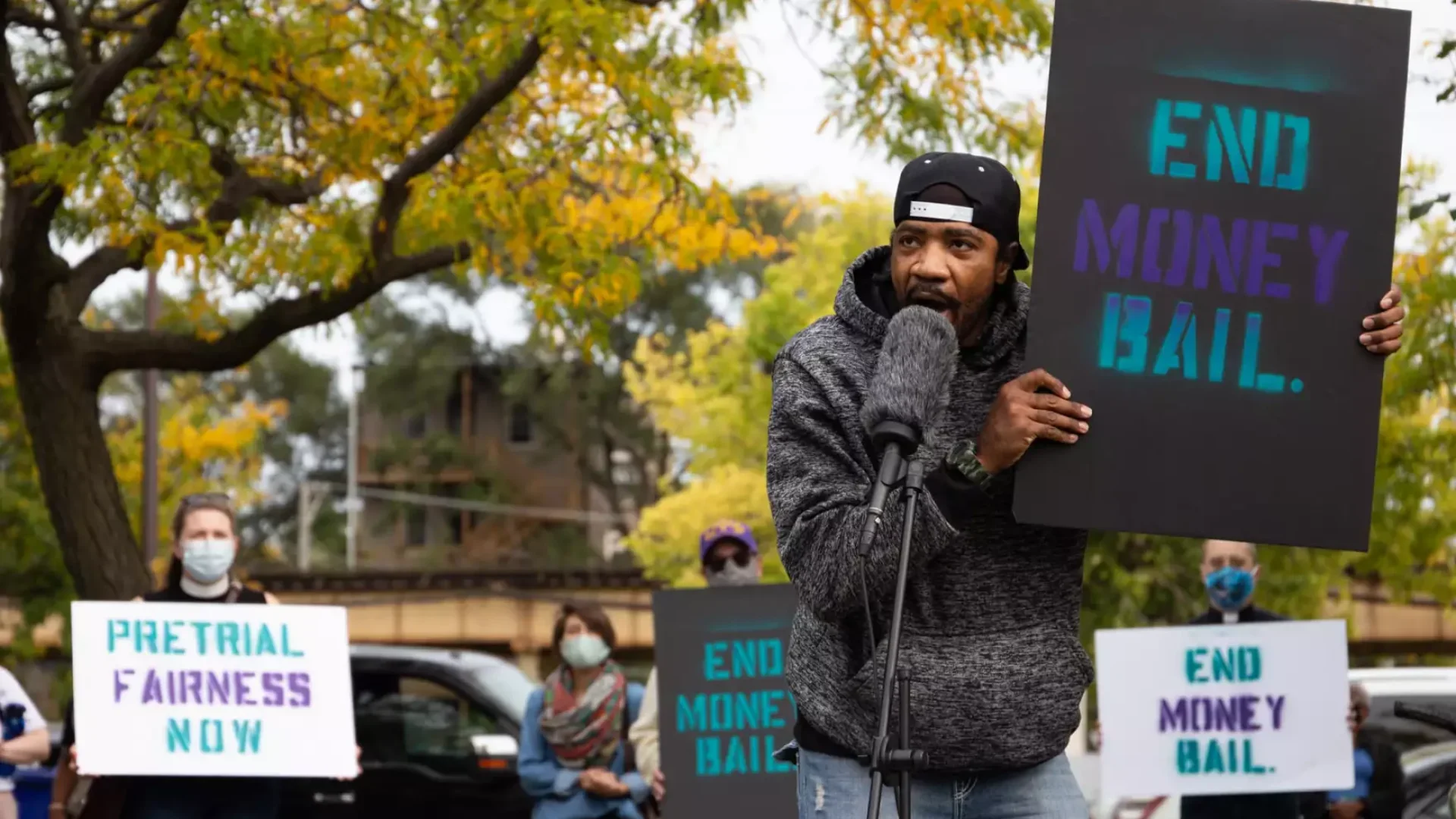
Illinois will become the first state in the nation to eliminate cash bail as a condition of pretrial release. Under the Illinois’ Pretrial Fairness Act, new criteria will be used to decide whether a suspect should be released or held in custody before trial. This replaces the current cash bail system that requires those who have been arrested for a crime to pay a fee to be freed from jail until their trial.
The law will go into effect in Illinois on September 18. Judges would still be able to hold those charged with major crimes in jail until trial, but only after a more thorough investigation of each case. According to critics, cash bail policies unfairly and disproportionately harm Black people and other communities of color.
According to a federal civil rights report published in 2022 on cash bail systems, courts frequently impose higher pretrial detention penalties on Black and Latino defendants. The report cited research that showed Black men’s bail amounts were 35% higher than white men’s, and Latino men’s bail amounts were 19% higher.
In an interview with the Associated Press, Cook County Public Defender Sharone Mitchell Jr. described the previous cash bail system in the state as “a cousin to slavery.”
“The vast majority of people in the system are poor, and they’re [largely] Black and brown, and they have no power. It is an incredibly unfair system,” he said. “You go to a bond hearing. It sounds like a slave auction. People are talking very fast. They’re putting price tags on people’s freedom,” Mitchell told the Associated Press.
A 2022 U.S. Commission of Civil Rights report found that the number of people imprisoned before trials increased fivefold between 1970 and 2015. According to data, roughly 74% of the 631,000 persons held every day in the United States are in jail awaiting trial, and more than 60% of defendants were detained before trial because they couldn’t afford to post bail.
Supporters of cash bail contend that it guarantees that defendants who have been released on bond appear in court proceedings and assert that without it, violent offenders who have been released on bail pending trial may be given the chance to commit other crimes.
Law enforcement has voiced the loudest resistance to the upcoming changes to cash bail in Illinois. The Illinois Sheriffs’ Association’s executive director, Jim Kaitschuk, stated that members are currently concentrating on “working through it as best we can.”
“I think we’ll be searching for a lot of people” because defendants who don’t post bond have no incentive to return to court, Kaitschuk said.
But some advocates say the cash incentive is not worth the overall costs.
“Cash bail creates a two-tiered system of justice hiding in plain sight. It splits the criminal legal system into two separate and unequal processes: one for those who have money and one for those who do not,” the American Bar Association’s “Human Rights Magazine” states. “After courts set bail amounts, people who can afford that cost return home to their families, jobs, and lives where they can prepare their defense and ultimately recoup their payment after returning to court. People who cannot afford bail are left behind bars for the duration of their case—often lasting months and even years. During that time, people’s lives can fall apart; they can lose their jobs and homes, be separated from their children, and endure the daily trauma that jail brings.”
Although releasing people before trial will become the default in Illinois, there will still be circumstances where detention is warranted, such as those suspected of violent or sexual acts or facing charges involving a firearm, the AP reports, according to Mitchell.
In such circumstances, the judge must consider “evidence, prior convictions, and whether the [suspected] offender is a flight risk” to decide whether to keep someone in jail.
“It won’t make the system perfect for everybody. But what it will do, we think, is put us in a better position to make a more thoughtful decision,” Mitchell said.